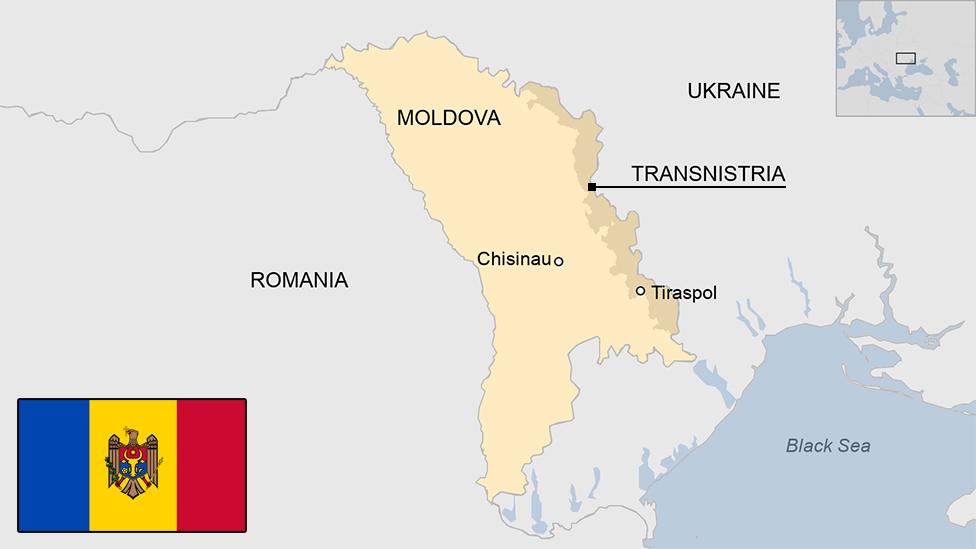Moldova anger grows over banking scandal
- Published
Rayhan Demytrie: "People say that the government has been serving the interests of rich oligarchs"
"Wake up Moldova, you have had enough!" is a line from a song being played over and over through loudspeakers in Chisinau's central square - the focal point of an ongoing anti-government protest.
A tent city has sprung up here following a mass rally on 6 September. Several hundred people have been camping out under the watch of policemen who are guarding the nearby prime minister's office.
Thousands more turned out for another rally on Sunday, holding Moldovan and EU flags and chanting "Victory!" and "Go!".
The protesters are calling on the government to resign and want an end to corruption.
"I am here because I am fed up with living in such poverty; people are leaving the country, students don't have work," Vladimir Popa, an 80-year-old professor of medicine.
"The starting salary for doctors is 1,000 leu (£33; €45). How can they live on that money?"
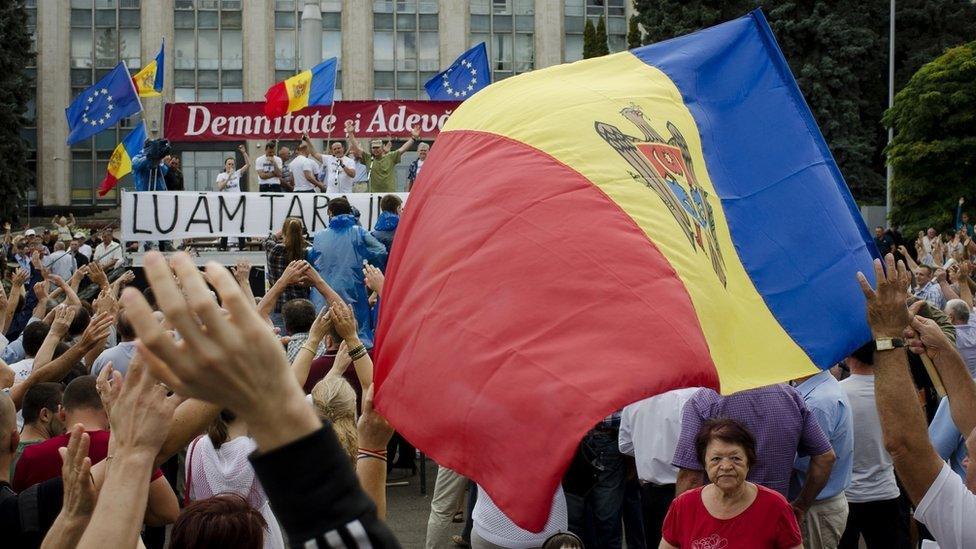
The protests are the largest that Moldova has seen for years
'Where is our billion?'
The protests have been organised by a grassroots citizens' movement, Dignity and Truth, whose leaders are lawyers, journalists and other well-known figures in Moldova.
Parliament speaker Andrian Candu: "Going for early elections will have catastrophic consequences"
Established in February, the movement is a response to the biggest known fraud in Moldova's history - the disappearance of $1bn (€880m; £646m) from the country's leading banks in 2014.
For a country considered the poorest in Europe the figure is staggering.
"People who failed to prevent this embezzlement, people who failed to find criminals, people who failed to find where the money is, people who failed to seize this money - of course they don't inspire any trust among the public," says one of the leaders of Dignity and Truth, Stanislav Pavlovskiy, a former judge at the European Court of Human Rights.
The authorities are investigating the money's disappearance. But in an interview with the BBC in June, chief prosecutor Corneliu Gurin said that he did not know how long the inquiry would take.
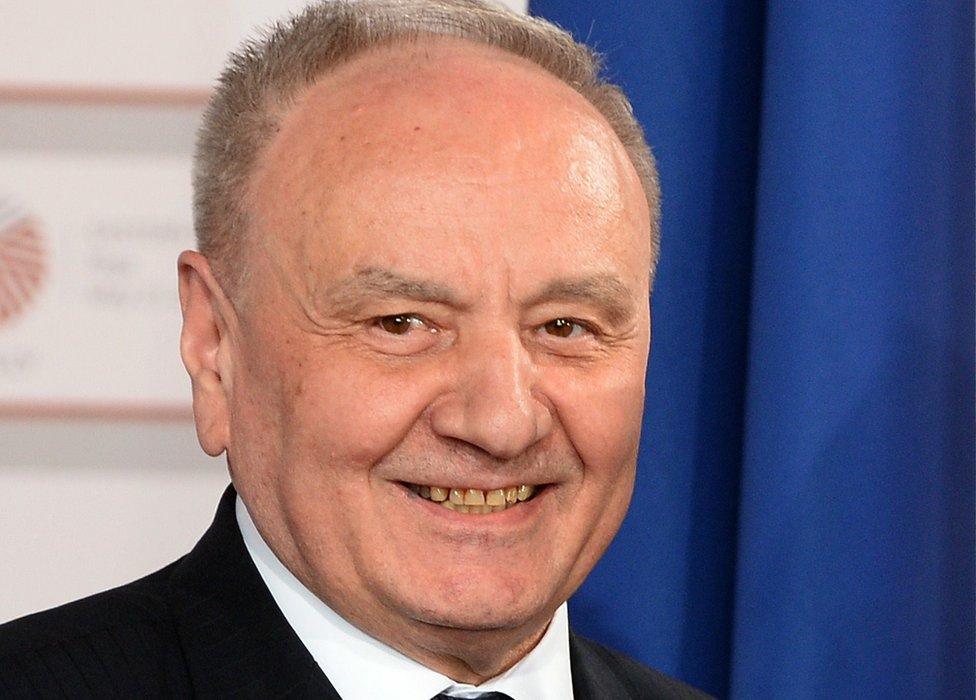
Protesters want Moldovan President Nicolae Timofti to resign
The government says it understands people's grievances but argues that meeting their demands will make the situation worse.
"Going for early elections will have catastrophic consequences. We won't be able to work with our international partners, we will get stuck in the economic crisis," says parliament speaker Adrian Candu.
"In the past four years we had four parliamentary elections."
Corruption
The missing money has underlined the deep-rooted problem of corruption within Moldovan society.
In response to the scandal, the EU, International Monetary Fund and World Bank have frozen their financial assistance to Moldova.
Sandwiched between Romania and Ukraine, this small former Soviet nation is influenced by both Russian and the European Union. Like Ukraine, Moldova has been seeking closer integration with Europe.
It also has a breakaway region supported by Russia, Trans-Dniester.
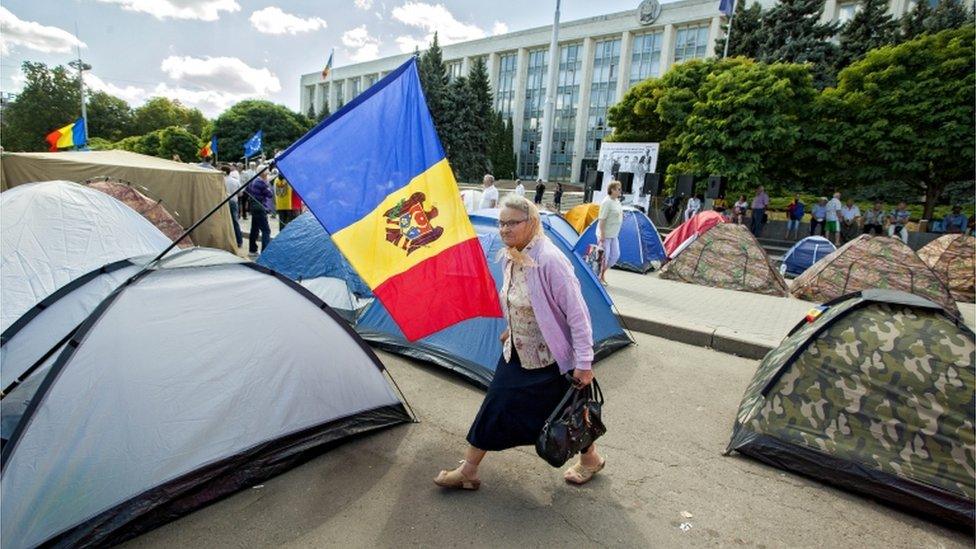
The protest movement that spawned a small tent city is calling for a nationwide strike and civil disobedience
A pro-European government has been in charge here for the past six years.
The abundance of EU flags in Chisinau's square suggests that most protesters have no problem with that. Instead, their anger is vented more at the authorities' failure to tackle corruption.
"I voted for this government, but they failed us, everything remains the same," says one of the protesters, Ion.
For now the protest continues and the leaders of Dignity and Truth have called for a nationwide strike and civil disobedience.
- Published18 June 2015
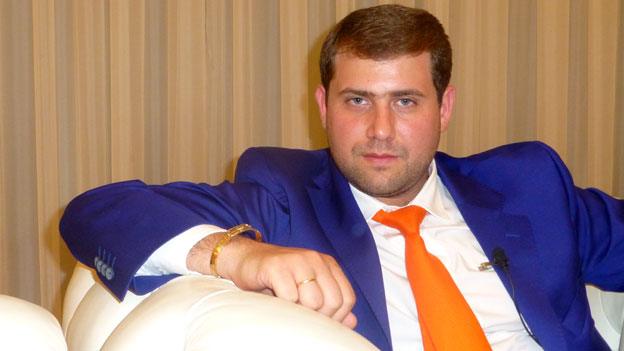
- Published4 November 2024
